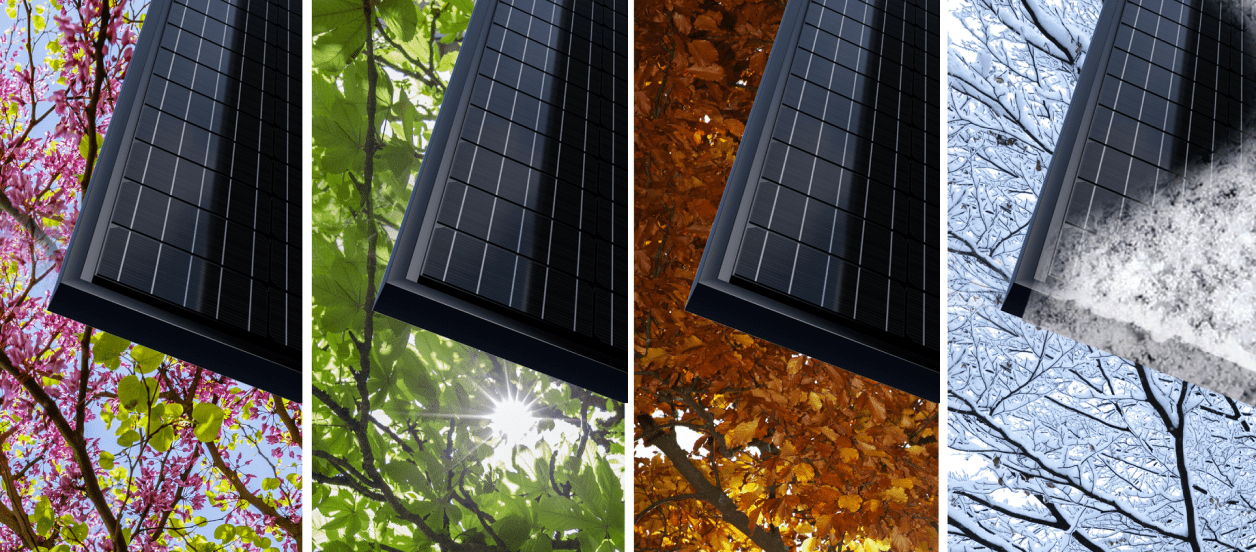
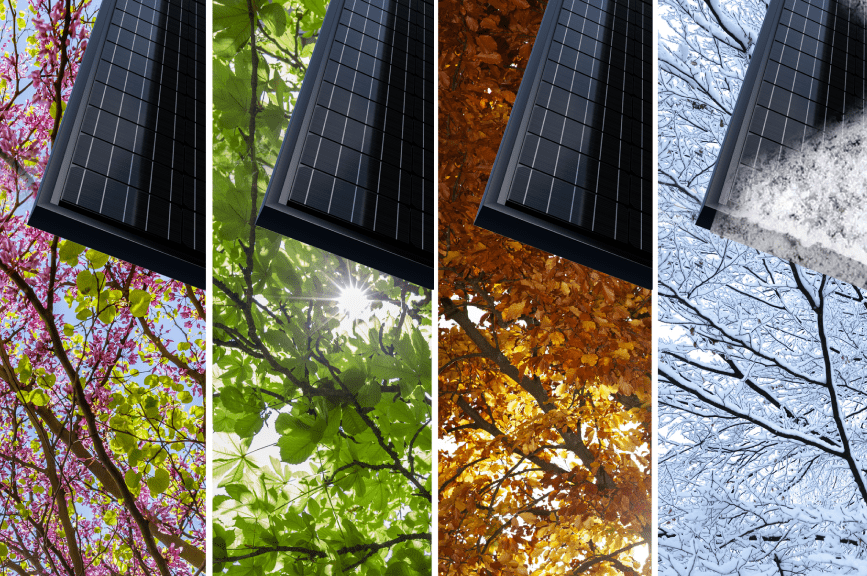
Discover how changes in weather and energy use can impact your solar performance.
Installing solar electric panels on your home has never been more practical. Over the last decade, the average price of solar panels has dropped more than 60 percent, and solar electricity is now cost competitive with traditional electricity in most states.*
There are many different ways that homeowners gain value from a home solar system: solar homeowners may enjoy the prospect of producing green energy, greater energy independence, and potential financial savings.
When assessing the financial value of your home solar system, it’s important to consider your seasonal solar panel performance, and changes in your home energy consumption throughout the lifespan of your solar system.*
Your Home Solar System May Help Offset Your Utility Electricity Needs
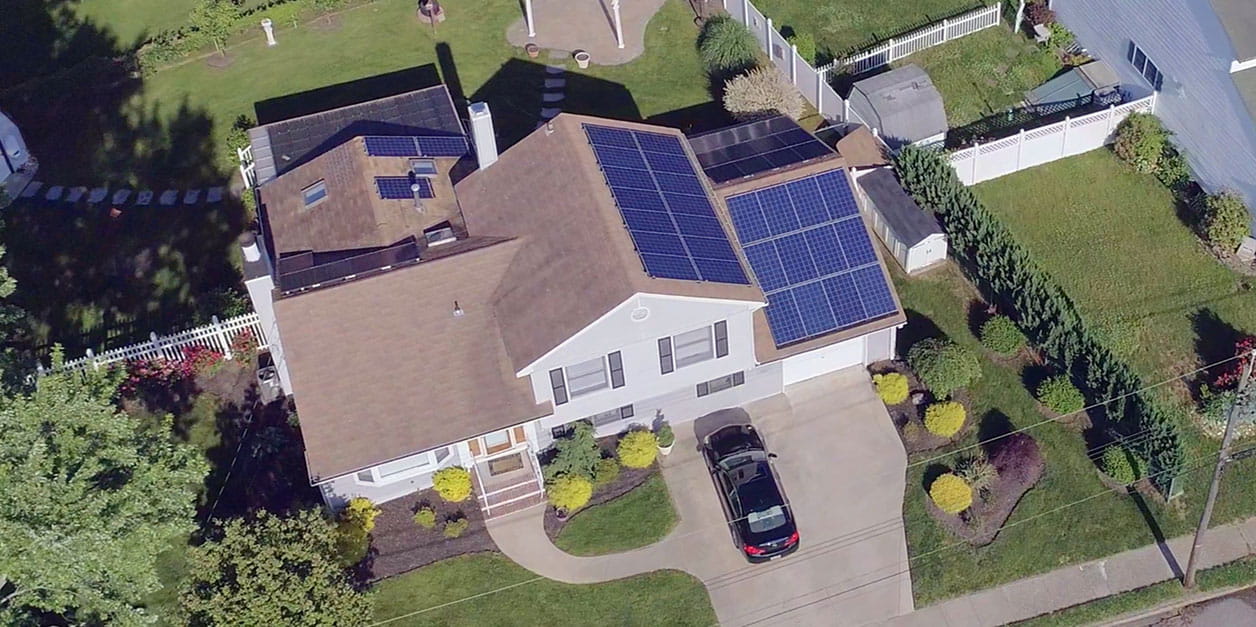
A major question for homeowners considering solar is whether a residential solar system can offset their utility electricity needs and, therefore, reduce their utility bill. This is especially important for homeowners who live in markets with high utility rates, like Hawaii, California and Massachusetts.
When you have solar panels installed, your system will still be connected to your utility’s power grid. During times that your home energy consumption exceeds your home solar production, you will use electricity from your utility.
The amount of electricity that your solar system offsets will depend on your solar panel output and your home energy usage at any given time. Your home solar system is based on your historical energy usage and how much of your current energy consumption you wish to offset.
The size of your home and available roof space also come into play. For example, a larger home consumes more electricity and typically needs more panels (or higher wattage panels) to offset its energy use. The amount of sunlight that hits your roof is another key factor, as well as the type of solar electric panels you choose.
How to Think About Your Seasonal Solar Panel Performance
Your solar panel energy production will vary throughout the year, and the amount of utility electricity you offset will depend on the weather and how much energy the members of your household consume. For instance, your panels will still work on cloudy and rainy days, but your solar system output will be lower than on a clear, sunny day. Therefore, when considering the value of your home solar system, in order to account for seasonality, we recommend reviewing at least one year of home solar and utility bills.
Your home solar system is most likely to reduce your utility bill when combined with smart energy consumption. If you increase your energy consumption at home because you have solar panels, then the energy offset by your home solar system will most likely be minimal.
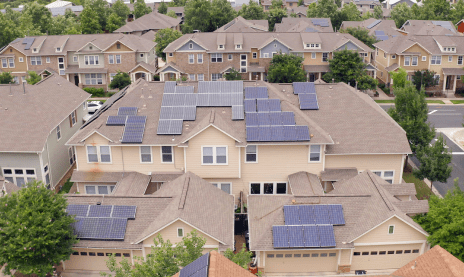
Across the U.S., spring and summer are usually peak solar production times due to increased direct sunlight and longer days. However, in hotter states, times of higher production also corresponds to times higher of home energy consumption. Summer can mean high air conditioning and pool pump usage.
In addition, spring and summer may lead to increased plant growth around your solar panels. If you have rooftop solar panels, it’s a good idea to trim any trees that may cause shading on your roof. If you have ground mounted panels, keep an eye on shrubs and bushes that might block any direct sunlight and hinder your solar system output.
While winter generally means decreased direct sunlight and shorter days, solar panels still work well in the winter. In fact, solar systems can have increased efficiency in colder weather, and snow can wash away dirt on solar panels. However, in colder states, colder temperatures in winter can lead to an increase in home electric heater usage.
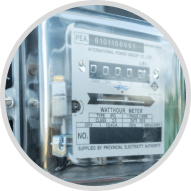
If you have net metering (also referred to as Net Energy Metering or NEM), excess summer solar production may help make up for using more utility electricity, such as running the AC.

Throughout the year, your solar system will have high and low production days. Be mindful of the months where you use more electricity and work to improve your energy efficiency during that time.

If you’re a Sunnova customer with a production guarantee, we will make sure you’re compensated for any missed production guaranteed under your agreement.*
How Your Home Solar System Responds to Weather Changes
Solar electric panels still produce energy with indirect sunlight. However, during a rainstorm when that light is reflected or blocked by cloud cover, expect your production to decline. If you live in an area with frequent rainstorms or hurricanes, you may want to consider adding a battery to your home solar system or installing a home solar system with a battery. A battery can provide backup power during a power outage and can store excess solar energy that you can use during times of low or no solar production, such as during a storm or at night.
Snow will also impact your solar generation, though not as much as you may think. Typically, wind can blow a light dusting of snow from your solar panels. Even if heavy snowfall accumulates on solar panels, as soon as the snow starts to slide off and light hits the solar panels, solar production may occur. Once solar production starts, solar panels heat up, which can help snow melt faster.
What about the opposite of rain and snow? What if you live in a dry, arid climate?
If you live in a dusty climate, you may need to rinse your solar panels with water to clear the dust. For safety reasons, it’s a good idea to stand on the ground and spray your panels off rather than climb up on your roof.
How Different Seasons Affect Your Home Energy Use
Your seasonal solar panel performance may rely heavily on Mother Nature, but the amount of energy your system offsets is impacted by the people in your home.
At different times of year, such as summer vacation and during the holidays, you may be hosting guests or spend time away from home. It’s important to consider how adding more people to your household may affect your energy consumption. If you have multiple houseguests during low solar production times, you may receive an unexpectedly high utility bill. In contrast, if you’re on vacation during high solar production times, you may receive more net metering credits than normal (if your utility offers net metering).*
Learn More About the Factors That Impact Production
Why Did I Receive a High Utility Bill with Solar?
You will continue to receive a bill from your utility, even with a home solar system. If you receive a high utility bill, think about the seasonality and your usage during the past month. For example:
- Were there more cloudy days than usual?
- Are there more people staying in your home than usual?
- Did your home energy usage increase?
If your home requires more electricity than it did in the past for any reason (maybe you installed a hot tub or enclosed your porch), the amount of your utility bill you offset will be affected even if your solar system is working perfectly.
A high utility bill or a period of lower solar energy production doesn’t necessarily mean that the financial value of your home solar system is diminished. The value of your home solar system should be measured across a year or longer to account for all seasonal and everyday life changes.
Whether you're thinking about installing solar or you’re already a Sunnova customer and want to offset more of your home’s energy consumption, our experts can help. Fill out the form and a team member will be in touch to discuss your options.

